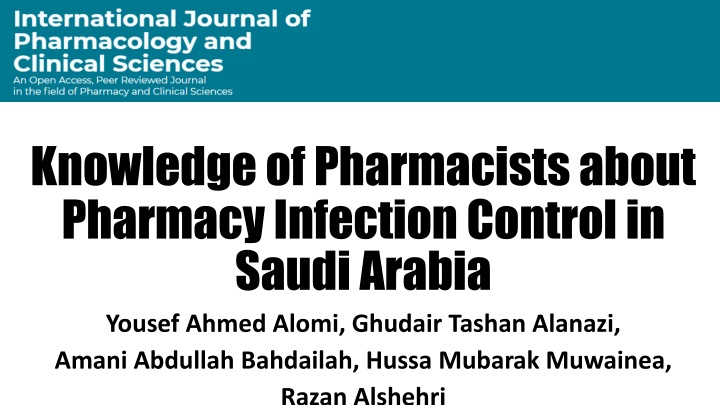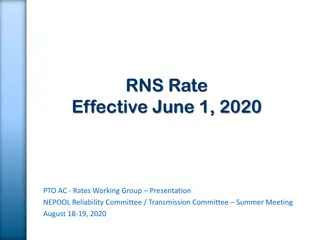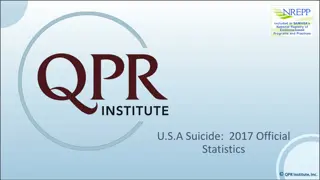
Pharmacists' Knowledge of Pharmacy Infection Control in Saudi Arabia Study
A study was conducted to assess pharmacists' knowledge of pharmacy infection control in Saudi Arabia. Results showed inadequate knowledge, highlighting the need for improved education and training to enhance pharmaceutical care and patient infection control in the country.
Download Presentation

Please find below an Image/Link to download the presentation.
The content on the website is provided AS IS for your information and personal use only. It may not be sold, licensed, or shared on other websites without obtaining consent from the author. If you encounter any issues during the download, it is possible that the publisher has removed the file from their server.
You are allowed to download the files provided on this website for personal or commercial use, subject to the condition that they are used lawfully. All files are the property of their respective owners.
The content on the website is provided AS IS for your information and personal use only. It may not be sold, licensed, or shared on other websites without obtaining consent from the author.
E N D
Presentation Transcript
Knowledge of Pharmacists about Pharmacy Infection Control in Saudi Arabia Yousef Ahmed Alomi, Ghudair Tashan Alanazi, Amani Abdullah Bahdailah, Hussa Mubarak Muwainea, Razan Alshehri
ABSTRACT ABSTRACT: : Objective Objective: : pharmacy infection control in the Kingdom of Saudi Arabia. crosssectional survey study was conducted to assess pharmacists knowledge about pharmacy infection control in Saudi Arabia. We used a self-reported electronic survey questionnaire and distributed it to pharmacists, including dentists from interns to consultants and pharmacy specialists in Saudi Arabia. The survey collected demographic information of regarding some of the selected pharmacy infection control elements in dental care. We also collected information regarding the resources they use to obtain knowledge of pharmacy infection control. We used 5-point Likert response scale system with close-ended questions to obtain their responses. The data were collected through the Survey Monkey system and analyzed using Statistical Package of Social Sciences (SPSS), Jeffery s Amazing Statistics Program (JASP), and Microsoft Excel (version 16) software. In this study, we aimed to assess pharmacists knowledge about Methods Methods: : This the responders and their knowledge
ABSTRACT: ABSTRACT: Results Results: : A total of 435 pharmacists responded to the questionnaire, with one-quarter of them coming from the central region (97 (22.35%)), and northern region (92 (21.2%)), with non-statistically significant differences between regions (p=0.637). Of the total responders, 212 (48.96%) were female, and 221 (51.04%) were male responders, with non-statistically significant differences between them (p=0.665). Most of the responders were in the age group of 24 30 years (151 (34.87%)) and 36 40 years (101 (23.33%)), with statistically significant differences between them (p=0.000). The total average score of pharmacy infection control assessment for basic knowledge was 3.34, with high scores obtained for the elements knowledge of hand hygiene (3.86) and personal protective equipment (3.83). In comparison, the lowest scores were obtained for the elements knowledge of the accidental sharp devices immunization system (2.80), and the infection control pharmacist gets more salary than regular pharmacist (2.91). The total average score of knowledge of frequently used disinfection and antiseptics products at your healthcare institution (3.60) and the high scores were obtained for the elements knowledge of peroxygens (hydrogen peroxide) (4.63) and alcohol (isopropyl alcohol 70%) (4.63). In comparison, the lowest scores were obtained for the element knowledge of phenolics (ortho-benzyl-parachlorophenol) (2.76) and the iodophors (povidone-iodine ointment 10%) (2.99). The score for the single-test reliability analysis of McDonald s was 0.927, Cronbach s was 0.924, Gutmann s 2 was 0.933, Gutmann s 6 was 0.973, and Greater Lower Bound was 0.989.
Conclusion Conclusion: : Pharmacists knowledge about pharmacy infection control was inadequate in the Kingdom of Saudi Arabia. Therefore, targeting to provide the necessary education and training for undergraduate and postgraduate students to improve pharmaceutical care in Saudi Arabia. patient infection control within
Key Words : Key Words : Knowledge, Pharmacist, Pharmacy, Infection Control, Saudi Arabia.
CONCLUSION: CONCLUSION: In summary, the knowledge of pharmacists about pharmacy infection control was found to be insufficient. The results were affected by various factors, such as young age, less work experience, lower position held, had inadequate knowledge. Therefore, education and training should be provided during the residency program to increase their knowledge about infection control. Consequently, we recommend that pharmacy infection control be founded at all healthcare organizations in Saudi Arabia.




















